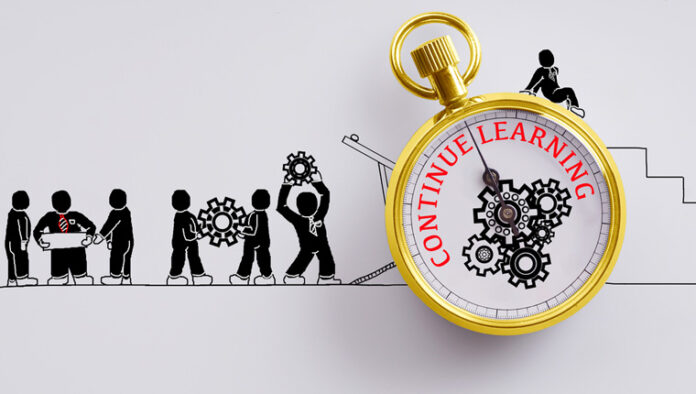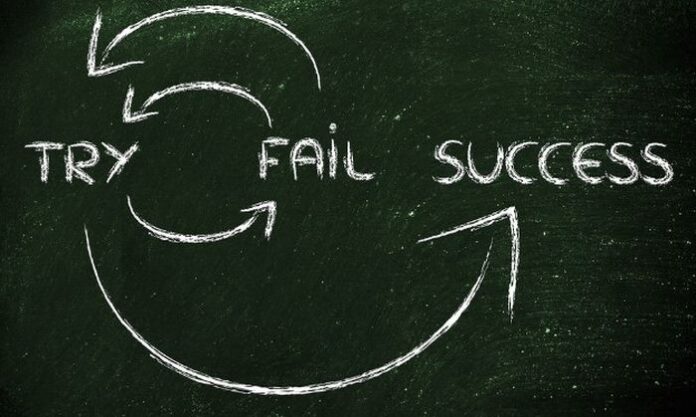Did you know Wisconsin has a diverse and thriving business community? From small startups to Fortune 500 companies, Wisconsin offers a wealth of opportunities for professionals in a variety of industries. As the business landscape continues to change and evolve, developing lifelong learning habits is essential to help you stay ahead of the curve and achieve your professional goals.
Here are ten lifelong learning habits that can help you thrive in today’s business world. These habits will help you stay ahead of the curve as a professional and achieve your full potential. So, whether you’re just starting in your career or a seasoned pro, read on to discover how to develop lifelong learning habits and achieve lasting success.
1. Take part in Continuous Learning

Continuous learning is the ongoing process of acquiring new knowledge and skills throughout your career. In today’s rapidly changing business world, staying updated with industry trends, technological advancements, and best practices is essential. One of the best ways to develop innovative ideas and enhance your business skills and expertise is by taking part in business programs, such as an MBA.
However, work and other responsibilities always make participating in traditional programs difficult. Fortunately, many distance learning programs are available to you that enable you to learn online and polish your professional skills. Institutions like the University of Wisconsin-Parkside, which ranks 3281 in the Webometrics Ranking Web of Universities, offer flexible and rigorous online programs. These UWP online programs provide working professionals with a flexible schedule, interactive content, and access to expert instructors, making learning and growing a convenient and effective way.
2. Practice Time Management

Effective time management is essential for success in today’s fast-paced business world. It involves setting priorities, planning your schedule, and maximizing your productivity.
Managing your time begins with establishing goals and breaking them down into smaller, manageable tasks. Use a calendar or planner to schedule your time and prioritize your tasks. Identify time-wasters and distractions and take steps to minimize them. Be sure to take breaks and prioritize self-care to avoid burnout.
3. Read Regularly
Reading regularly is one of the most effective ways to stay updated with the latest trends and developments. Reading books, articles, and other publications can broaden your knowledge and understanding of your industry. It can also help you develop critical thinking skills and enhance your creativity.
Set aside a specific time each day to read. You can also create a reading list of books and articles you want to read and set a goal to read a certain number of pages or chapters daily. Choose reading materials that are relevant to your field or topics that interest you.
4. Attend Conferences and Seminars

Attending conferences and seminars is an excellent way to learn about your field’s latest trends, innovations, and best practices. These events provide opportunities to network with industry experts and peers, exchange ideas, and gain new insights into your industry.
The best way to locate relevant conferences and seminars is to check industry associations, trade publications, and online directories. Look for events that align with your interests and professional goals. When attending these events, be sure to come prepared with a list of questions to ask and take notes to help you remember the key takeaways.
5. Seek Mentors and Coaches
Having a mentor or coach can provide valuable guidance and support in your career development. Mentors and coaches can offer insights into the industry, provide feedback on your performance, and offer advice on how to navigate challenges.
When seeking a mentor or coach, contact industry associations or professional networks. Look for individuals who have experience and expertise in your field and who share similar values and interests. When building a relationship with a mentor or coach, be sure to communicate your goals and expectations and be open to feedback and advice.
6. Practice Self-Reflection

Self-reflection is an essential habit for personal and professional growth. It involves taking time to evaluate your actions, behaviors, and thought patterns and identifying areas where you can improve.
For self-reflection, spend time every day reflecting on your experiences and actions. Consider your strengths, weaknesses, and areas for improvement. Keep a journal to record your reflections and track your progress over time.
7. Collaborate with Others
Collaboration is an effective way to learn from others and gain new perspectives. Working with others can help you develop new skills, build stronger relationships, and gain valuable insights into your industry.
To find opportunities for collaboration, reach out to colleagues, industry associations, or professional networks. Look for individuals or groups who share similar interests and goals. When collaborating with others, be sure to communicate openly and be willing to compromise and adapt to different working styles.
8. Embrace Failure

Failure is a natural part of the learning process. Embracing failure and learning from it can help you grow and improve in your career. It’s important to view failure as an opportunity to learn and adjust your approach rather than a reflection of your abilities.
You can embrace failure by reframing your mindset around it. Recognize that failure is a part of the learning process and that everyone experiences it. When you encounter failure, take time to reflect on what went wrong and identify what you can do differently next time. Use failure as an opportunity to grow and improve rather than letting it hold you back.
9. Engage in Continuous Improvement
Continuous improvement involves making small, incremental changes to improve your performance over time. It’s about being proactive in identifying areas for improvement and taking action to address them.
To engage in continuous improvement, set personal goals, and identify areas for improvement. Use data and feedback from others to help you identify specific areas for improvement. Then, take action to make small changes over time, such as developing new skills, improving processes, or refining your approach to tasks.
10. Stay Curious
Staying curious involves maintaining a sense of wonder and excitement about the world around you. It means being open to new ideas and perspectives and asking questions to understand the world better.
Developing a curious mindset is the first step to staying curious. Ask questions and seek out new information and experiences. Approach challenges with a sense of wonder and a desire to learn. Make it a habit of learning something new every day, whether trying a new hobby, reading a new book, or taking a new course.
Conclusion

With today’s dynamic and ever-changing business environment, it’s important to stay current on industry trends, develop new skills, and explore new ideas – all of which can be achieved with a zest for learning. This habit also positions you for success by helping you achieve professional and personal goals.
So take the first step today, and start cultivating the habits of lifelong learning that will help you thrive in your career and beyond.









